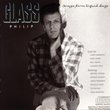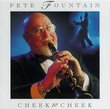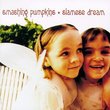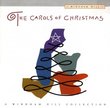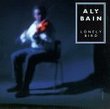| All Artists: Game Theory Title: Tinker to Evers to Chance Members Wishing: 8 Total Copies: 0 Label: Capitol Release Date: 3/16/1990 Genres: Alternative Rock, Pop, Rock Styles: Indie & Lo-Fi, American Alternative, Power Pop Number of Discs: 1 SwapaCD Credits: 1 UPCs: 018777535120, 018777535144 |
Search - Game Theory :: Tinker to Evers to Chance
 | Game Theory Tinker to Evers to Chance Genres: Alternative Rock, Pop, Rock
|
CD DetailsSimilarly Requested CDs
|
CD ReviewsAn Excellent Introduction to Game Theory Kevin Doyle | Newtown, CT United States | 09/04/2003 (5 out of 5 stars) "Before he formed the Loud Family, Scott Miller led Game Theory, arguably one of the finest bands to come out of California in the 1980's. This greatest hits package (some of which, in Miller's words, reached national obscurity, as opposed to regional obscurity) is a great introduction to the band. Miller, a gifted songwriter and underrated singer, and the various folks that play with him (Game Theory was sort of Miller and whomever was in the room with him at the time) created some terrific alternative pop, not unlike Let's Active, REM and the Three O'Clock. Highlights include "Erica's Word," "24" and "The Real Sheila."" The 80s didn't get much better Laszlo Matyas | 08/15/2009 (5 out of 5 stars) "What to say about Tinker To Evers To Chance? For starters, I guess I can point out that it's a twenty-two track highlights reel by what may very well be my favorite band. It was assembled, complete with liner notes, by said band's leader, a fellow named Scott Miller. Aside from being Game Theory's only consistent member, Scott played guitar, sang, and wrote pretty much all of the songs. I guess I should also say that he's one of my most cherished musical heroes. Aside from the fact that he is simply one hell of a guy- friendly, candid, well-read, funny, and self-deprecating- Mr. Miller was (and continues to be) an astonishingly good songwriter.
Game Theory lit up the mid 80s with their brand of chiming, jangling, 60s-bedazzled indie pop. There are plenty of good reference points, like how their early work sounds like Murmer era R.E.M. with a paisley chaser, but nobody sounded quite like Game Theory. Miller's songwriting, tied as it was to the California college scene, was never restrained by any particular idiom. Like the work of Alex Chilton (an obvious influence), Game Theory's best songs existed in a sort of blissful pop-rock netherworld; they looked back to the glorious, glowing grandeur of the most memorable Beatles hooks, incorporated the masturbatory teenage sweetness of 70s power-pop, took Lou Reed and Elvis Costello into account, tangled with punk's bleak futurism, and came up with a sound all their own. Which is to say, Miller's songwriting captures the sweetness of pure pop, but casts a knowing glance at the forces that threaten to confront its innocence. A good Scott Miller song is one that channels joy, release, and freedom, but never lets itself get more than two or three steps ahead of this deep, churning undercurrent of anxiety. The focus is almost always on youth and its trappings. Miller's protagonists are sensitive young men, naive enough to surrender to their often irrational emotions, smart enough to see the potential pitfalls they're willingly submitting themselves to, and endowed with a sense of self-deprecating irony that allows them to laugh at themselves, even as they suffer the consequences that they saw coming. These lyrics are woman-worshipping, starry-eyed, virtually asexual, and yet endowed with the passion of the deepest soul. Like those of Elvis Costello (another obvious influence), Miller's words "careen all over the place verbally yet somehow manage to plug directly into the emotions." (I'm quoting William Ham here, from his wonderful essay on Game Theory, which you need to read) Like Costello, Miller erases any threat of self-pity or preciousness from his writing by twinning his sweeter musings with dry cynicism and prickly wit. But where Elvis let his bitterness consume him (not that that wasn't awesome), Miller let his big heart win out in the end. And then there's the music, which jangles and rattles and shivers and pulses and drifts drips melts pummels and screeches with the rollicking ecstasy of pop, the teenage escapism of Chuck Berry, the sunblasted symphonic swell of the Beach Boys, the noisy soul searching of the Velvet Underground, the gut-wrenching hooks of "I Want To Hold Your Hand," the sweet delirium of Radio City. And yet it never sounds like a big bag of influences; Scott (and his bandmates, who really were always wonderful) synthesized all of this into something that was unique, expressive, poignant, fun, and irrevocably brilliant. The final product of all this alchemy is a perfect encapsulation of adolescence, with all its joyous angst and mental calisthenics and emotional zigzagging. Very few artists have ever produced pop this good. Or music this good, for that matter. So... um... the songs. Well, the selection's not perfect (this compilation is missing the shout-along-at-the-top-of-your-lungs-at-night-in-the-car power pop masterpiece that is "Chardonnay," as well as the pummeling catharsis of "The Waist And The Knees"), but there's still nary a bad song to be found among these twenty-two. "Beach State Rocking," actually a re-recording of a song by Miller's pre-GT group Alternate Learning, rewires surf rock, augmenting the genre's jaunty rhythms and guitar runs with chunky power chords, while the lyrics mourn childhood's end by casting an ironic pall over those sun-splashed visions of a dreamy beachside California: I walk outside but I freeze In the sun Having deferred to the longer run, I give up my right to be young My blood flows as the joyride comes And my heart says to grab on, But my fingers are numb Beach state rocking, everybody's talking But it's all been told, it's never old Beach state rocking, Christmas without stockings It's the formal coat you've never owned It takes the children from their homes! After two minutes of rollicking anxiety, Miller deadpans "well I'd call myself an artist if I could make these feelings clear/ But there's a million things to think about when you're cutting off your ear." And then there are twenty-one more classics. There's "We Love You Carol And Alison," which, oh what do I know, may be the greatest guitar-pop song in the history of ever. It's a series of fluttering melodic epiphanies, with these verses that build tension so sweetly and subtly that you don't even realize you're tense, until the melody starts rising inexorably and boils over into a blissful chorus, an ode to the helpless surrender to female magnetism that's as joyously dreamlike as... well, as the helpless surrender to female magnetism. "Shark Pretty" addresses the pitfalls of such a surrender, but when Scott bellows breathlessly about those "pretty saboteurs," he almost seems to be celebrating his own powerlessness. It's incredibly infectious, and the surging rockabilly of the rhythm only adds to the song's sense of ecstatic defeat. And there's "The Red Baron," the sweetest and saddest tale of romantic disappointment you're ever likely to hear. There's "24," which sees Miller channeling post-collegiate confusion, letting those guitars shimmer like stars, AND throwing in a musical quote from "Stairway To Heaven." Speaking of which, there's also this swath of pure raw jubilation called "Sleeping Through Heaven," and an anthemic bout of collegiate angst by the name of "Bad Year At U.C.L.A." And... oh God, I could be here all day describing highlights. And I'm already out of adjectives. Please, please, please, just track down this disc. You'll thank me. Or maybe not. Who knows?" |

 Track Listings (22) - Disc #1
Track Listings (22) - Disc #1
